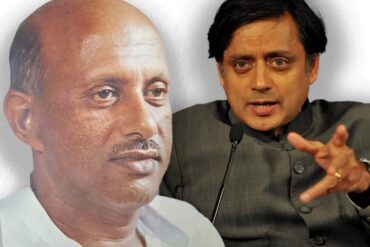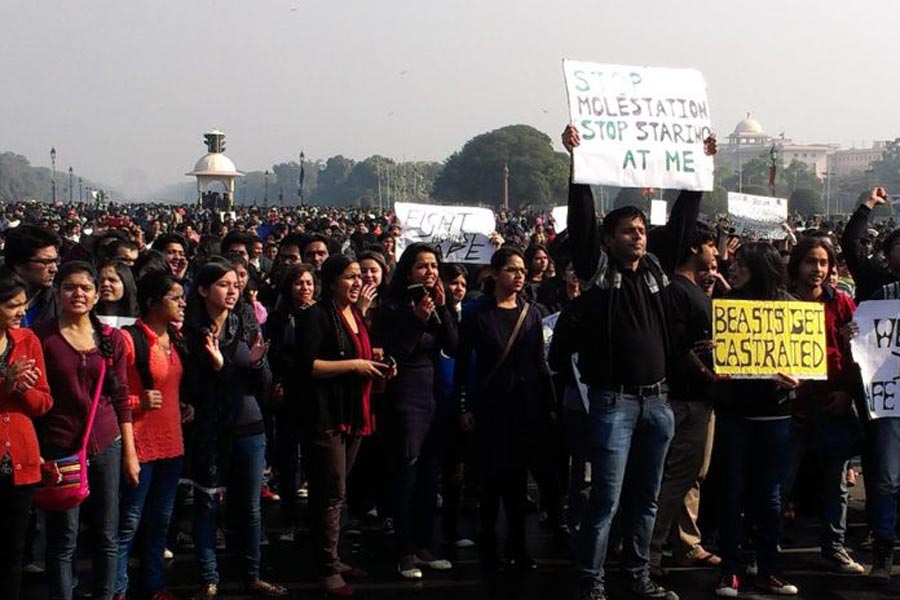“At the stroke of the midnight hour, when the world sleeps, India will awake to life and freedom”. This sentence in the ‘tryst with destiny’ speech of Jawaharlal Nehru has inspired generations of Indians and will continue to do so. But there is something that will haunt all Indians for a long time to come: the agonising entreaty by the Unnao rape victim to save her life:
“I don’t want to die. I want to live to see them hanged,” she told her family. Unfortunately, the poor girl did not survive to see her wish realized.
Her case highlights the height of lawlessness in Yogi Adityanath’s expansive state of Uttar Pradesh, where Unnao has become a symbol of brutality against women. Unnao also marks a new low in our lack of concern as a society for the security of women. It is not about law, crime and punishment. We have failed as a society, nation and as a democracy.
The beasts hitherto were content with violating the body of their victims, leaving them to suffer their fate for the rest of life. Now they want to exterminate the victims so that there are no traces of the heinous crime left. That this is emerging as a pattern has dangerous portends for our credentials as a civilized people.
Our response as a society, including the public, executive and judiciary, has become more savage and callous as we have lost sensitivity towards atrocities against women. Our routine responses for all practical purposes go in favour of the perpetrators rather than the victims, who are taken for granted.
The fear of ‘miscarriage of justice’ often works in favour of the oppressors rather than the oppressed, which the perpetrators take advantage of. Despite all that we proclaim about even-handed justice, the system is skewed in favour of those who wield power and authority.
In fact, the fatal attack on the Unnao victim was made possible by the court granting bail to the accused, although the girl’s family had been fearing such an eventuality. The courts uphold the principle that bail is the rule and jail the exception. There is nothing wrong with such an exalted approach, but the court should have weighed in the possibility of the bail being misused, given the vulnerabilities of the victim and the social inequalities in the system.
It is a travesty of justice that the court had granted the bail on the condition that the “applicant will not try to influence the witnesses or tamper with the evidence of the case or otherwise misuse the liberty of bail.”
Every time an incident happens, there is clamour for more laws. But more laws for what? We don’t faithfully implement even the most basic of the existing laws, which would have been enough to prevent Unnao-like situations. The first lapse happens at the police station itself, where the police look for excuses not to register an FIR rather than book an offence. Any number of objections are raised, some of which are as ridiculous as lack of jurisdiction, to pass the buck.
When the Unnao victim first approached the police, she was sent back with an advice to come after the offence is committed. So much for the commitment of our police for the safety and security of women.
The Hyderabad encounter, which everyone except the police believes to be fake, has triggered a debate on “instant justice”.
Chief Justice Sharad Arvind Bobde has spoken against revenge and instant justice, but in the same breath he has also stressed the need for timely dispensation of justice. But speaking is one thing and acting on it quite another.
Vice President Venkaiah Naidu has put the onus straight on the judicial system by declaring that while there cannot be instant justice, there cannot be constant delays either. Speed and objectivity are of paramount importance. He even warned against ‘inaction or dysfunctional dilution of standards’ which will only lead to anarchy.
More than reforming the law, we need to reform implementation of the law. The judicial system, as we practice it today, provides much leeway to the offenders to delay court proceedings and frustrate dispensation of justice. We have innumerable examples of how the courts get taken in by the tactics of these influential criminals, who are able to play with the judicial process to take it along the direction that they prefer and deny justice to the victims.
We must not make a scarecrow of our judicial system if anarchy and disorder are to be averted.
(By arrangement with IPA)







